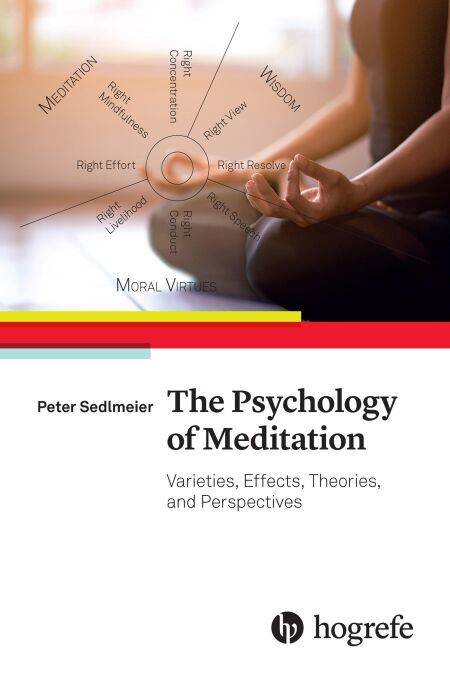
Bedankt voor het vertrouwen het afgelopen jaar! Om jou te bedanken bieden we GRATIS verzending (in België) aan op alles gedurende de hele maand januari.
- Afhalen na 1 uur in een winkel met voorraad
- In januari gratis thuislevering in België
- Ruim aanbod met 7 miljoen producten
Bedankt voor het vertrouwen het afgelopen jaar! Om jou te bedanken bieden we GRATIS verzending (in België) aan op alles gedurende de hele maand januari.
- Afhalen na 1 uur in een winkel met voorraad
- In januari gratis thuislevering in België
- Ruim aanbod met 7 miljoen producten
Zoeken
The Psychology of Meditation E-BOOK
Varieties, Effects, Theories, and Perspectives
Peter Sedlmeier
E-book | Engels
€ 34,99
+ 34 punten
Omschrijving
All you need to know about the psychology of meditation:
- Written by an expert in the field
- Provides unique theories of meditation approaches
- Explores traditional and Western approaches
- Recommends how to improve future research
- Explores new topics, e.g., negative effectsMore about the book
What is meditation? What do people hope to get from practicing it and what do they really get? How can the effects of meditation be explained? And what are the best approaches to researching the psychology of meditation so we can understand more? This unique book by a leading expert provides state-of-the-art answers to these questions. Contrary to commonly accepted wisdom, meditation comes in a range of varieties and the reasons why people begin to meditate (and stay with it) are also numerous and varied. Even mindfulness, which is often (wrongly) used as a synonym for meditation, comes in many forms.
The book succinctly summarizes the beneficial effects found in the avalanche of studies available, especially in clinical contexts, and also explores recently emerging topics such as negative effects and the impact of ethics and spirituality. The author expertly provides theories of the four traditional meditation approaches, which has never been done before in this form, and gives a critical overview of Western approaches to explain the effects of meditation. In conclusion, he makes recommendations on how to improve future meditation research. This book is of interest to mental health practitioners, researchers, students interested in meditation and mindfulness approaches.
- Written by an expert in the field
- Provides unique theories of meditation approaches
- Explores traditional and Western approaches
- Recommends how to improve future research
- Explores new topics, e.g., negative effectsMore about the book
What is meditation? What do people hope to get from practicing it and what do they really get? How can the effects of meditation be explained? And what are the best approaches to researching the psychology of meditation so we can understand more? This unique book by a leading expert provides state-of-the-art answers to these questions. Contrary to commonly accepted wisdom, meditation comes in a range of varieties and the reasons why people begin to meditate (and stay with it) are also numerous and varied. Even mindfulness, which is often (wrongly) used as a synonym for meditation, comes in many forms.
The book succinctly summarizes the beneficial effects found in the avalanche of studies available, especially in clinical contexts, and also explores recently emerging topics such as negative effects and the impact of ethics and spirituality. The author expertly provides theories of the four traditional meditation approaches, which has never been done before in this form, and gives a critical overview of Western approaches to explain the effects of meditation. In conclusion, he makes recommendations on how to improve future meditation research. This book is of interest to mental health practitioners, researchers, students interested in meditation and mindfulness approaches.
Specificaties
Betrokkenen
- Auteur(s):
- Uitgeverij:
Inhoud
- Aantal bladzijden:
- 294
- Taal:
- Engels
Eigenschappen
- Productcode (EAN):
- 9781613345764
- Verschijningsdatum:
- 9/05/2022
- Uitvoering:
- E-book
- Beveiligd met:
- Digital watermarking
- Formaat:
- ePub

Alleen bij Standaard Boekhandel
+ 34 punten op je klantenkaart van Standaard Boekhandel
Beoordelingen
We publiceren alleen reviews die voldoen aan de voorwaarden voor reviews. Bekijk onze voorwaarden voor reviews.









